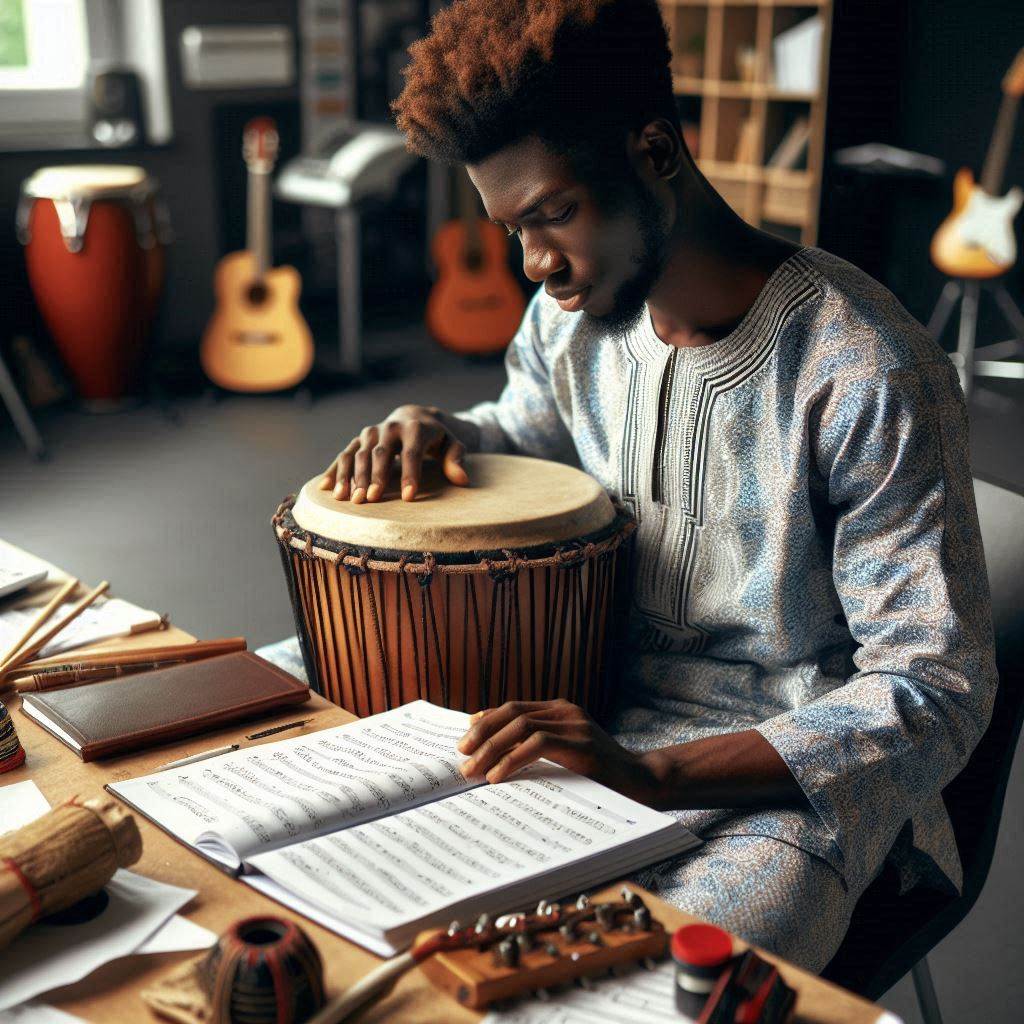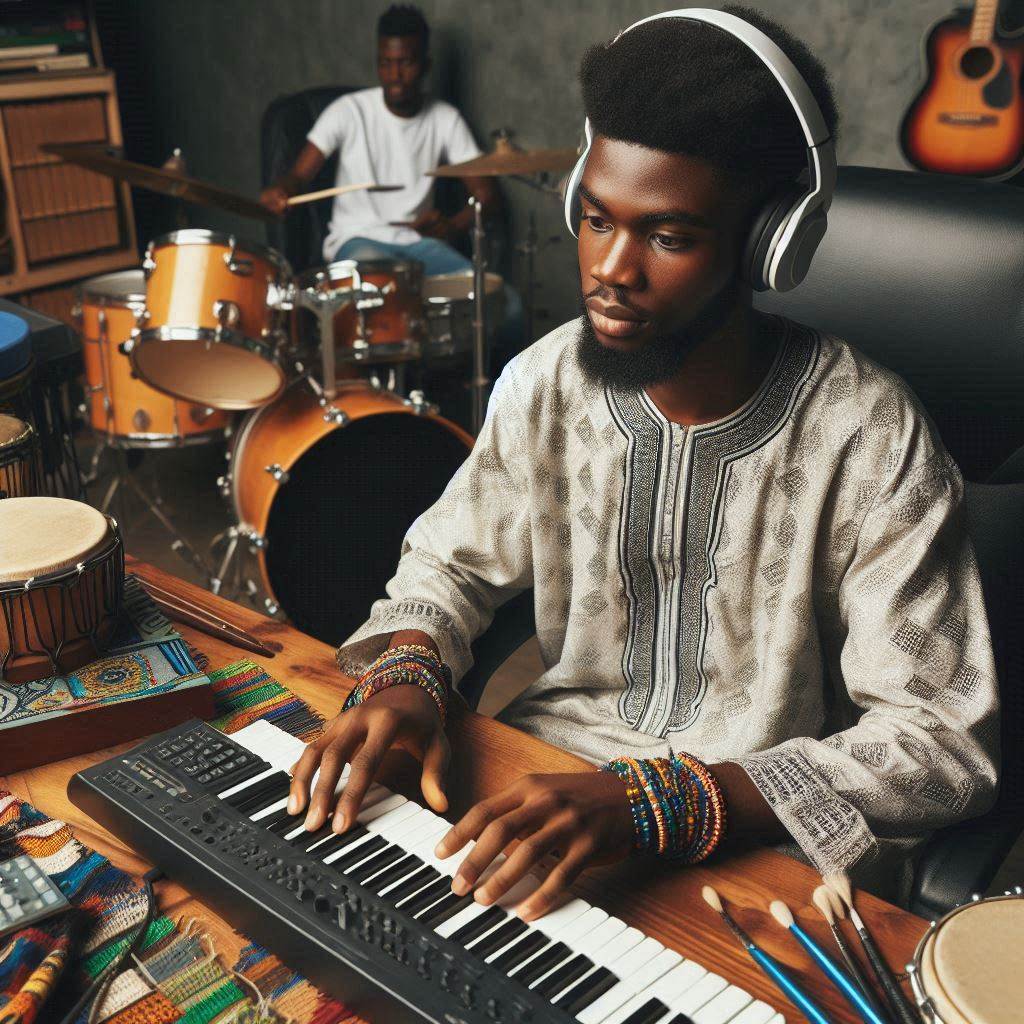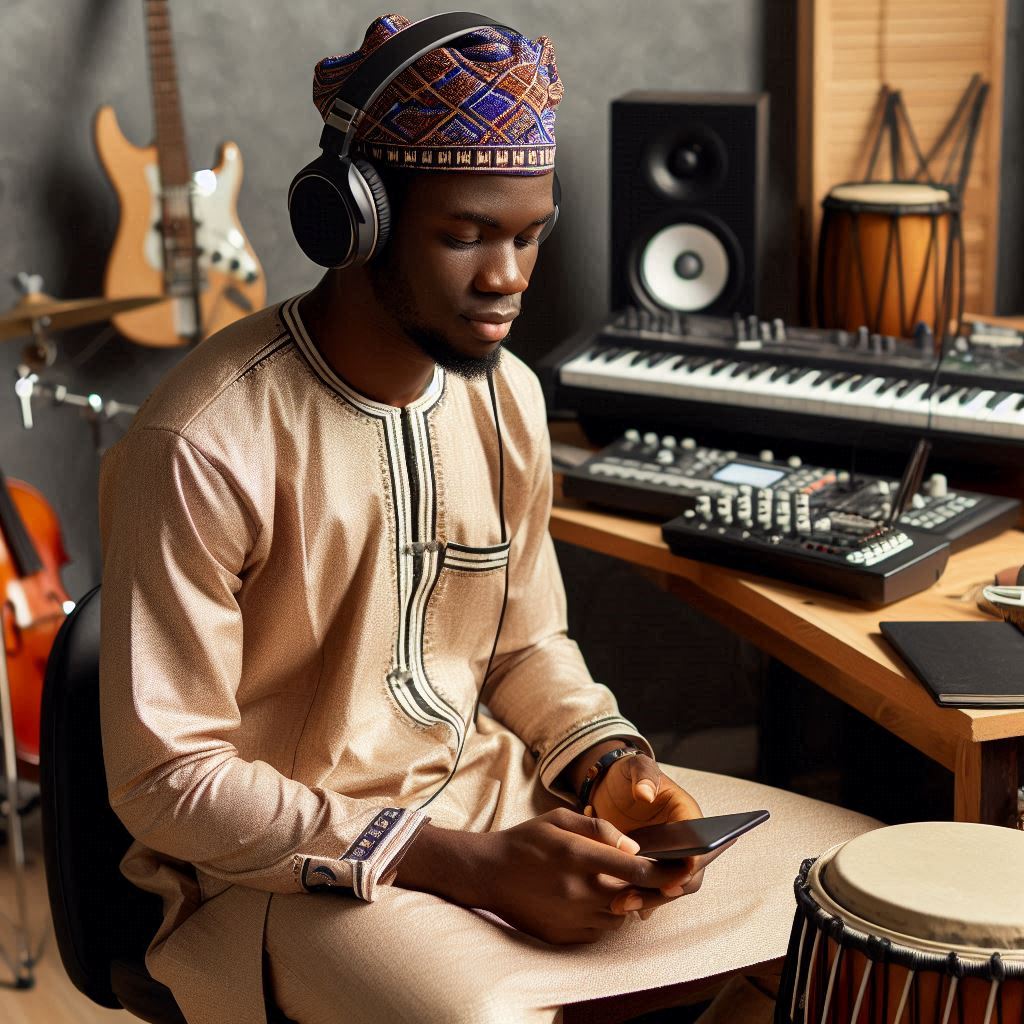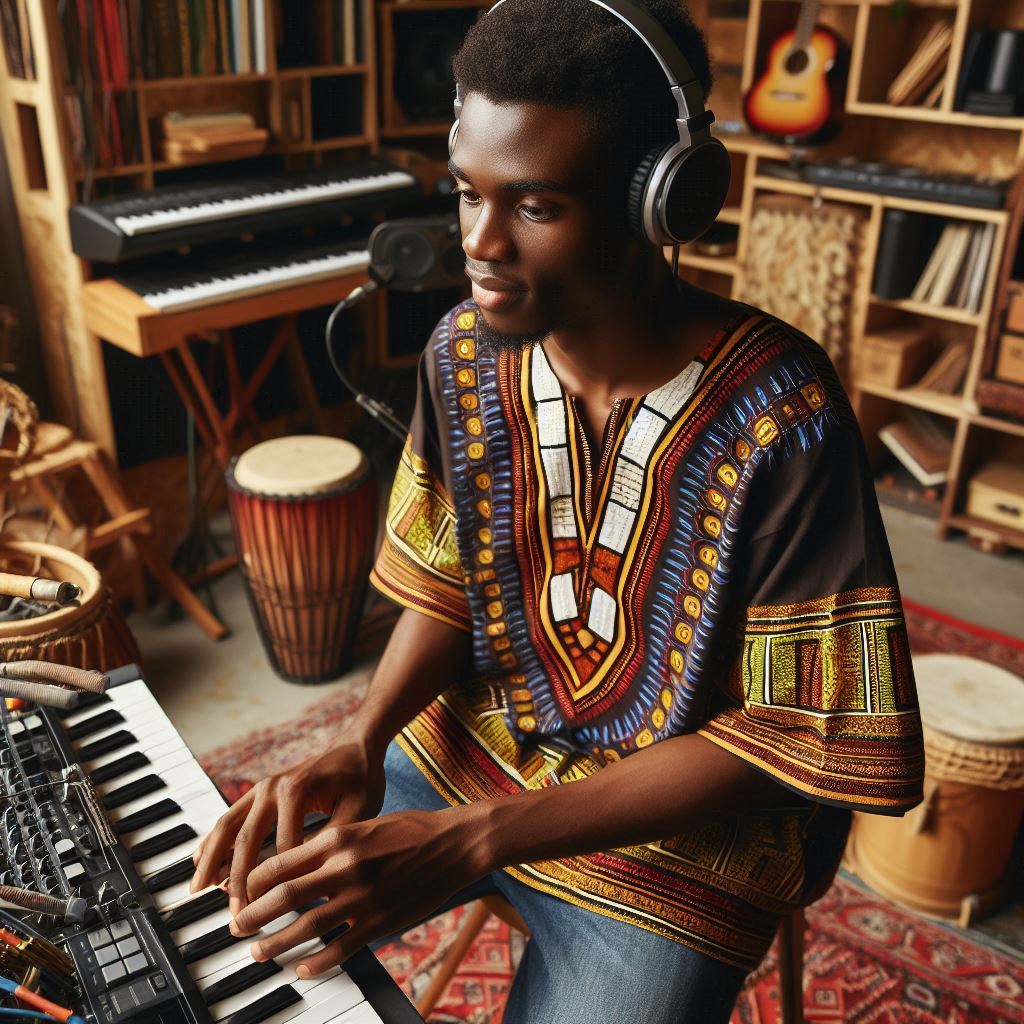Introduction
The history of music education in Nigerian universities is a fascinating journey that reflects the nation’s cultural richness and educational development.
Since the early days of formal education in Nigeria, music has played a significant role in shaping the intellectual and artistic landscape of the country.
Music education is not merely about teaching musical skills; it encompasses a broader spectrum of cultural, social, and cognitive development.
Through music education, individuals acquire valuable skills such as creativity, critical thinking, collaboration, and communication.
These skills are essential for personal growth and contribute to the overall development of a nation.
In this section, we will embark on a journey through time to explore the evolution of music education in Nigerian universities.
We will delve into key milestones, influential figures, and transformative initiatives that have shaped the landscape of music education in the country.
Through this exploration, we aim to uncover the underlying principles and ideologies that have guided the development of music education and its impact on Nigerian society.
Pre-colonial era
Traditional music education practices in Nigeria before the arrival of colonialists
Traditional music education practices in Nigeria were deeply rooted in cultural traditions and customs.
Before the arrival of colonialists, music played a significant role in the educational systems of various ethnic groups across the country.
Influence of indigenous music on early education systems
The influence of indigenous music on early education systems in Nigeria cannot be overstated.
Music was not just a form of entertainment but also a means of passing down knowledge, history, and values from one generation to another.
Role of oral tradition in passing down musical knowledge through generations
One of the key components of music education in pre-colonial Nigeria was the reliance on oral tradition.
Musical knowledge, including techniques, rhythms, and compositions, was transmitted orally from teachers to students, ensuring the preservation and continuity of musical traditions.
Colonial era
British colonization had a significant impact on the education system in Nigeria
During the colonial era, British colonization had a significant impact on the education system in Nigeria.
The British established schools and universities with a curriculum that reflected their own cultural and educational values.
One of the key aspects of this colonial education system was the introduction of Western music education curriculum in Nigerian universities.
This was a deliberate effort to instill British cultural values and norms through music education.
Western music education curriculum was introduced as part of the colonial influence
As part of this curriculum, music departments were established in Nigerian universities.
These departments were tasked with teaching European classical music to students.
The goal was to instill a sense of appreciation for Western classical music and to train students in the principles and techniques of European music.
The introduction of Western music education in Nigerian universities had both positive and negative impacts.
On the positive side, it provided students with exposure to a different style of music and broadened their cultural horizons.
It also helped to elevate the status of music as an academic discipline in Nigeria.
Music departments were established in Nigerian universities to teach European classical music.
However, there were also negative aspects to this colonial-era music education.
One criticism was that it marginalized indigenous Nigerian music and traditions in favor of European classical music.
This led to a loss of cultural identity and heritage among Nigerian students.
Additionally, the emphasis on European music may have stifled the development of a uniquely Nigerian musical identity.
Despite these criticisms, the establishment of music departments in Nigerian universities during the colonial era laid the foundation for the development of music education in Nigeria.
It paved the way for future generations of music educators to build on this foundation and to incorporate a more diverse range of musical styles and traditions into the curriculum.
Essentially, the colonial era had a lasting impact on the history of music education in Nigerian universities.
The introduction of Western music education curriculum and the establishment of music departments were important milestones in the development of music education in Nigeria.
While there were challenges and criticisms associated with this colonial-era music education, it laid the groundwork for the growth and evolution of music education in Nigeria.
Read: Sociology Departments in Nigerian Universities
Post-independence era
The post-independence era witnessed a significant transformation in music education across Nigerian universities.
This evolution encompassed the incorporation of traditional Nigerian music into academic curricula, spearheaded by pioneering figures who championed cultural preservation and innovation.
Evolution of Music Education in Nigerian Universities after Gaining Independence
After gaining independence, Nigerian universities embarked on a journey to redefine their approach to music education.
The curriculum underwent a profound evolution, reflecting a renewed emphasis on celebrating Nigeria’s cultural heritage.
This shift was a response to the need for cultural revitalization and self-determination in post-colonial society.
Incorporation of Traditional Nigerian Music into the Curriculum
A pivotal aspect of this evolution was the incorporation of traditional Nigerian music into academic programs.
Recognizing the intrinsic value of indigenous musical traditions, universities sought to bridge the gap between formal education and local culture.
This move aimed to preserve, promote, and explore Nigeria’s rich musical heritage within an academic context.
Pioneering Figures in the Development of Music Education in Nigeria
Several pioneering figures played instrumental roles in shaping the development of music education in Nigeria.
Among them, Professor Akin Euba, a distinguished composer and scholar, stood out for his groundbreaking work in ethnomusicology.
His research and advocacy laid the groundwork for the integration of Nigerian music into academic curricula, setting a precedent for future initiatives.
Another influential figure was Professor Laz Ekwueme, whose contributions as a composer and musicologist elevated the status of Nigerian music on the global stage.
His efforts to promote indigenous music both nationally and internationally had a profound impact on music education in Nigeria.
Through his compositions and scholarly endeavors, Ekwueme inspired a generation of musicians and scholars to embrace their cultural heritage.
Dr. Onwuegbuna Anthony Akalawu emerged as a prominent voice in the development of music education, emphasizing the importance of cultural preservation and innovation.
His innovative teaching methods and commitment to nurturing indigenous talent contributed to the holistic evolution of music education in Nigerian universities.
Akalawu’s legacy continues to inspire educators and students alike to explore and celebrate Nigeria’s diverse musical traditions.
Basically, the evolution of music education in Nigerian universities after gaining independence was characterized by the incorporation of traditional Nigerian music.
Academic curricula, driven by the efforts of pioneering figures such as Akin Euba, Laz Ekwueme, and Anthony Akalawu.
Their visionary leadership and dedication to cultural preservation have enriched music education in Nigeria, ensuring that future generations continue to cherish and safeguard the country’s musical legacy.
Read: Sociology Departments in Nigerian Universities
Discover More: Nigerian Music Schools: Curriculum Overview
Delve into the Subject: Top Nigerian Universities for History & Strategic Studies
See Related Content: Influence of African Art on Nigerian Artists
Explore Further: How to Succeed in Comparative Politics in Nigeria
Challenges Faced in Music Education
The landscape of music education in Nigerian universities is marred by significant challenges, including insufficient funding, limited resources, and a shortage of qualified educators.
These obstacles hinder the optimal development of aspiring musicians and scholars in the country.
Lack of Funding for Music Departments in Universities
One of the primary challenges facing music education in Nigerian universities is the lack of adequate funding for music departments.
Insufficient financial support restricts the capacity of these departments to provide quality education, invest in infrastructure, and support research and innovation.
As a result, students and faculty alike are hindered in their pursuit of excellence in music education and scholarship.
Limited Resources and Facilities for Music Students
In addition to funding constraints, music students in Nigerian universities often face a scarcity of resources and facilities essential for their academic and artistic growth.
From practice rooms and performance spaces to instruments and technology, the lack of adequate resources impedes students’ ability to fully engage with their studies and develop their musical talents.
This deficiency undermines the quality of education and limits students’ opportunities for creative expression and practical training.
Need for More Qualified Music Educators in Nigerian Universities
Addressing this shortfall necessitates investing in faculty recruitment and professional development initiatives. This attracts and retains talented educators who inspire and mentor aspiring musicians and scholars.
Therefore, inadequate funding, limited resources, and a shortage of qualified educators pose significant barriers to music education in Nigerian universities.
University administrators, government agencies, and music community stakeholders must make a concerted effort to address these challenges. They should prioritize and invest in music education, infrastructure, and faculty development initiatives.
Addressing these issues ensures music students in Nigerian universities have access to necessary resources, facilities, and mentorship. This enriches the country’s cultural landscape and musical heritage.
Read: Sociology Departments in Nigerian Universities

Learn More: Entry-Level Jobs for Mass Communication Graduates Nigeria
Uncover the Details: Economics Internship Opportunities in Nigeria
Recent developments in music education
Introducing music technology programs in Nigerian universities marks a significant advancement in music education. It reflects growing global recognition of Nigerian music.
Collaboration between universities and the music industry further enhances educational opportunities, shaping a dynamic landscape for aspiring musicians and scholars in the country.
Introduction of Music Technology Programs in Nigerian Universities
The integration of music technology programs into Nigerian universities’ curricula represents a pivotal shift in music education.
These programs equip students with essential skills and knowledge in audio engineering, production, and digital composition.
By embracing technology, universities empower students to explore innovative avenues of musical expression and adapt to the evolving demands of the music industry.
Increasing Recognition of Nigerian Music on a Global Scale
Nigerian music has garnered increasing recognition on a global scale, fueling interest in its diverse genres and cultural influences.
This newfound prominence presents an opportunity for Nigerian universities to showcase the country’s musical heritage and contribute to its international visibility.
Universities play a vital role in promoting cultural exchange by incorporating Nigerian music. They foster deeper appreciation for Nigerian musical traditions’ richness and diversity.
Collaboration Between Universities and Music Industry to Enhance Music Education
Collaboration between Nigerian universities and the music industry offers invaluable opportunities for students to gain practical experience and industry insights.
Through internships, workshops, and guest lectures, students can connect with industry professionals, access state-of-the-art facilities, and participate in real-world projects.
This collaboration enriches students’ educational experiences, equipping them with the skills, networks, and confidence to pursue successful careers in the music industry.
Generally, the introduction of music technology programs, increasing recognition of Nigerian music on a global scale.
Collaboration between universities and the music industry represent significant advancements in music education in Nigerian universities.
These developments empower students to embrace technology, celebrate cultural heritage, and engage with the dynamic landscape of the music industry.
Nigerian universities, embracing innovation and collaboration, will cultivate a new generation of musicians and scholars. They’ll contribute to Nigeria’s musical legacy, ensuring its vibrancy globally.
Read: History of Sociology in Nigeria: A Comprehensive Overview
Delve into the Subject: Comparative Politics vs International Relations Nigeria
Conclusion
As we conclude our exploration of the history of music education in Nigerian universities, we recognize a journey marked by evolution and transformation.
From humble beginnings to significant advancements, this narrative underscores the resilience and innovation within the realm of music education.
It’s crucial to emphasize the importance of preserving and promoting music education in Nigeria.
Beyond mere academic pursuit, music education serves as a custodian of cultural heritage, preserving the diverse musical traditions that define our identity as Nigerians.
By nurturing a deep appreciation for our musical heritage, we empower future generations to connect with their roots and contribute to the vibrant tapestry of Nigerian culture.
Together, let us ensure that the halls of Nigerian universities continue to resonate with the melodies of our past, present, and future.
Let us equip our students with the tools they need to become ambassadors of Nigerian music on the global stage.
In doing so, we not only enrich the lives of individuals but also contribute to the cultural enrichment and prosperity of our nation as a whole.




